
Validation of liquid chromatography mass spectrometry (LC-MS) methods
Course introduction
This course is offered as a MOOC (Massive Open Online Course) during December 16, 2025 – February 27, 2026.
Course introduction
http://www.uttv.ee/naita?id=23245
https://www.youtube.com/watch?v=jbdA8PnPdLY
Short description of the course
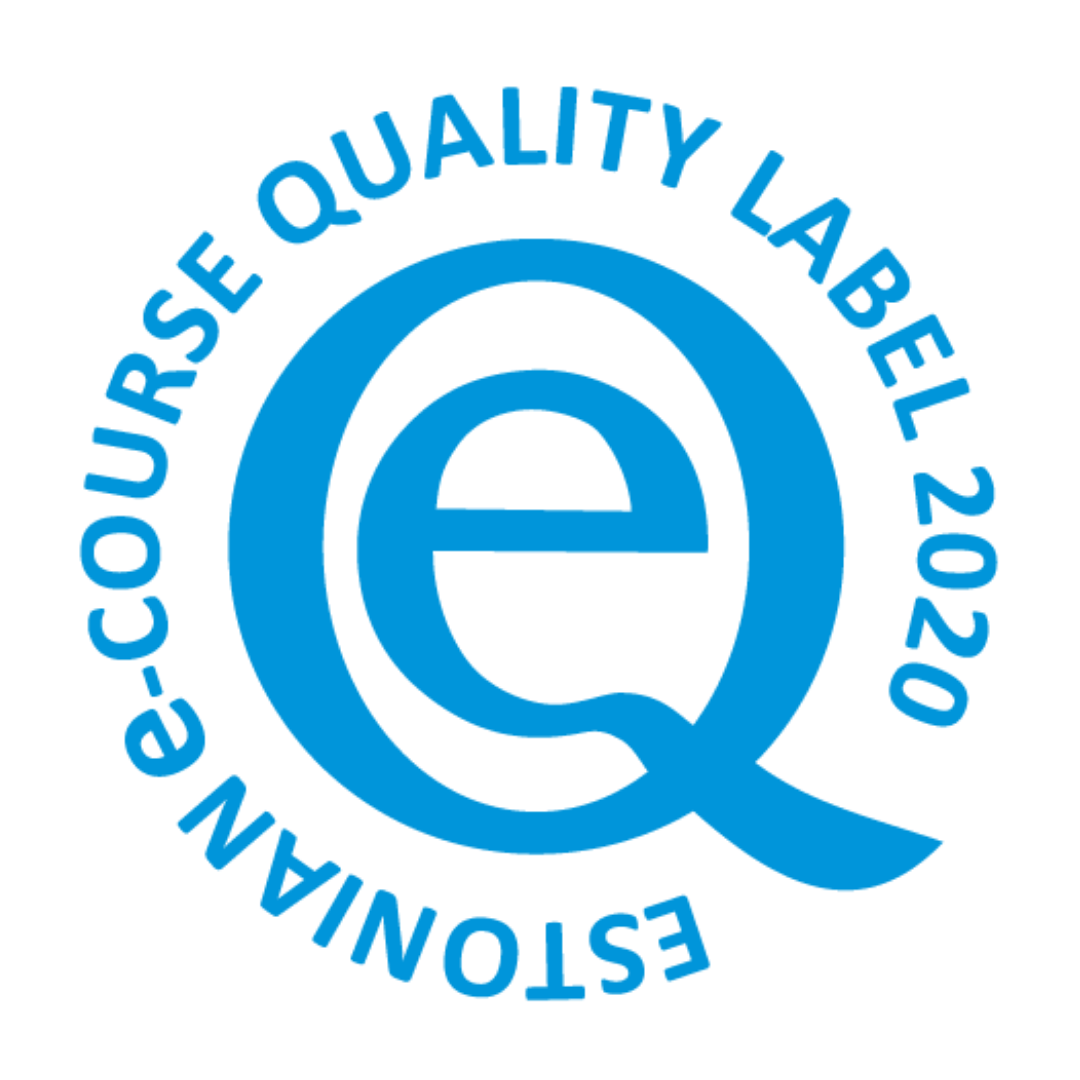 This course – LC-MS Method Validation – is a practice-oriented on-line course on validation of analytical methods, specifically using LC-MS as technique. The course introduces the main concepts and mathematical apparatus of validation, covers the most important method performance parameters and ways of estimating them. The course is largely based on the published two-part tutorial review:
This course – LC-MS Method Validation – is a practice-oriented on-line course on validation of analytical methods, specifically using LC-MS as technique. The course introduces the main concepts and mathematical apparatus of validation, covers the most important method performance parameters and ways of estimating them. The course is largely based on the published two-part tutorial review:
- Tutorial review on validation of liquid chromatography–mass spectrometry methods: Part I. A. Kruve, R. Rebane, K. Kipper, M.-L. Oldekop, H. Evard, K. Herodes, P. Ravio, I. Leito. Anal. Chim. Acta2015, 870, 29-44
- Tutorial review on validation of liquid chromatography–mass spectrometry methods: Part II. A. Kruve, R. Rebane, K. Kipper, M.-L. Oldekop, H. Evard, K. Herodes, P. Ravio, I. Leito. Anal. Chim. Acta2015, 870, 8-28
The course contains lectures, practical exercises and numerous tests for self-testing. In spite of being introductory, this course intends to offer sufficient knowledge and skills for carrying out validation for the most common LC-MS analyses in routine laboratory environment. The real-life analysis situations for which there are either examples or self-tests, are for example pesticide analyses in fruits and vegetables, perfluoroalkyl acids in water, antibiotics in blood serum, glyphosate and AMPA in surface water. It is important to stress, that for successful validation, experience (both in analytical chemistry as such and also specifically in validation) is crucial and this can be only acquired through practice.
Running as MOOC
The MOOC is run in the UT Moodle environment. You can have a preview of the MOOC in Moodle environment as a guest without registration. There (course introduction) you will find detailed information about the course organization, graded tests, formation of the grade and awarding of the certificate. Guest access also allows you to view the course contents in Moodle. As a guest you cannot read forums and take quizzes.
Required preliminary knowledge
Introductory level knowledge of analytical chemistry, as well as liquid chromatography and mass spectrometry is required. More advanced knowledge of analytical chemistry and introductory knowledge of mathematical statistics is an advantage. If you need help with basics of chromatography then you can consult for example these two sources: (1) Basic HPLC Theory and Definitions: Retention, Thermodynamics, Selectivity, Zone Spreading, Kinetics, and Resolution in book: Analytical Separation Science and (2) The Chromatography and Sample Preparation Terminology Guide.
Study outcomes
The participant who has successfully passed the course knows:
- the main performance parameters of analytical methods, what they show and which of them are particularly important in different situations;
- the main mathematical concepts and tools in method validation;
- the main approaches for evaluation of the performance parameters in the case of LC-MS analysis.
The participant who has successfully passed the course is able to:
- decide what data are needed for evaluating the different method performance parameters, understand the meaning of the available data and decide whether the available data are suitable and sufficient;
- select the validation approach and design the experiments for obtaining suitable data;
- quantify the relevant performance parameters using the available data and assess whether the obtained values are realistic;
- assess the fitness of the method for the intended purpose based on the values of the evaluated performance parameters.
Organization of the course material
The course is organized in 11 thematic sections, of which most are in turn split into smaller subsections. The following parts are found in the sections:
- The sections (and also many subsections) start with a brief introduction stating the main topic(s) and study outcomes of the section.
- The main topic of the respective section is explained in one or several short video lectures. The videos are by default streamed in high quality from the UT Video server, which needs quite good Internet connection. If you have slow Internet connection we recommend watching videos from YouTube, using the links below each video window.
- The lecture(s) is(are) complemented by a textual part. The textual part is in most cases meant to complement, not substitute the lecture (although in some cases the contents of the lecture are also repeated to some extent). It rather gives additional explanations and addresses some additional topics that were not covered in the lecture.
- Participants are introduced to the
 software, which helps to carry out validation of chromatographic methods. Learners are encouraged to use ValChrom throughout the whole course.
software, which helps to carry out validation of chromatographic methods. Learners are encouraged to use ValChrom throughout the whole course. - Most sections end with a self-test, which enables to assess the acquired knowledge and skills. Self-tests contain questions, as well as calculation problems. Self-tests are on the one hand meant for the participants to monitor their progress. On the other hand, however, they also promote thinking and provide (by the feedback of the questions) additional knowledge about the validation in different practical situations. Therefore, self-tests are intrinsic components of the course and participants are strongly encouraged to take all of them.
The printout of the current version of the course materials (including the lecture slides) can be downloaded from here.
Self-testing
Throughout the course there are numerous self-tests for enabling a participant to test his/her knowledge and skills in specific topic. Each test is graded as a percentage (100% corresponding to correctly answering all questions and correctly solving all problems).
Feedback is given as:
![]() Correct answer, correctly recognised and marked by the student.
Correct answer, correctly recognised and marked by the student.![]() Incorrect answer, however, considered correct by the student.
Incorrect answer, however, considered correct by the student.
Explanatory feedback is displayed when wrong answer is selected. All self-tests can be taken as many times as needed and the success of taking these tests will not influence the final grade. We recommend that you take all the tests and work with them until you achieve the score 100% and only then move to the next topic.
Terminology and definitions
At the end of the thematic section there is Glossary, which gives definitions and/or explanations of the terms used in the course. Wherever possible, the used terminology adheres to the one used in the Tutorial review on validation of liquid chromatography–mass spectrometry methods (Literature sources 1 and 2).
If you would like to learn more …
This course is part of the Excellence in Analytical Chemistry (https://www.analyticalchemistry.eu/) Erasmus Mundus master’s programme, which offers education in all aspects of Analytical chemistry, including metrology in chemistry (measurement uncertainty, method validation, reference materials, etc), as well as economic and legal aspects of chemical analysis.
This course is run within the framework of the Estonian Center of Analytical Chemistry with the aim of offering easily accessible knowledge in analytical chemistry to labs and industries in Estonia and elsewhere.
Literature sources
The main literature sources of the course are here:
- Tutorial review on validation of liquid chromatography–mass spectrometry methods: Part I. A. Kruve, R. Rebane, K. Kipper, M.-L. Oldekop, H. Evard, K. Herodes, P. Ravio, I. Leito. Anal. Chim. Acta 2015, 870, 29-44
- Tutorial review on validation of liquid chromatography–mass spectrometry methods: Part II. A. Kruve, R. Rebane, K. Kipper, M.-L. Oldekop, H. Evard, K. Herodes, P. Ravio, I. Leito. Anal. Chim. Acta 2015, 870, 8-28
- B. Magnusson and U. Örnemark (eds.) Eurachem Guide: The Fitness for Purpose of Analytical Methods – A Laboratory Guide to Method Validation and Related Topics, (2nd ed. 2014).
- The European Commission: Guidance document on analytical quality control and method validation procedures for pesticide residues and analysis in food and feed. Also known as SANTE (formerly SANCO). The link leads to a page where the most recent version, as well as the older versions can be found.
- European Commission Decision 2002/657/EC implementing Council Directive 96/23/EC concerning the performance of analytical methods and the interpretation of results, Off. J. Eur. Commun. L221 (2002) 8-36.
Note that this directive is superseded by Commission Implementing Regulation (EU) 2021/808 of 22 March 2021 on the performance of analytical methods for residues of pharmacologically active substances used in food-producing animals and on the interpretation of results as well as on the methods to be used for sampling. - JCGM 200:2008, International vocabularyof metrology — Basic and general concepts and associated terms (VIM), 3rd edition. BIPM, IEC, IFCC, ILAC, ISO, IUPAC, IUPAP and OIML, 2008.
This list of main literature references of this course is selective, not exhaustive. References were selected on the basis of the following criteria: (a) widely used and cited; (b) useful under practical lab conditions (i.e. not too deeply scientific or theoretical) and (c) a fairly recent version is available.
In addition, at the end of the course materials there is a more voluminous list of literature sources that are referred to in various parts of the course and are meant for users who are more deeply interested in specific topics. References are referred to in the course via numbers in square brackets, e.g.: [ref 15].
Course team
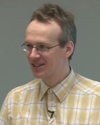 |
Ivo Leito, professor of analytical chemistry at University of Tartu. Ivo teaches analytical chemistry and metrology in chemistry at all study levels and organizes short training courses for practitioners on different topics of analytical chemistry and metrology in chemistry. His research work embraces a wide area of topics ranging from studies of superacids and superbases to LC-MS analysis. He is the initiator and coordinator of the Erasmus Mundus joint master’s programme Excellence in Analytical Chemistry at University of Tartu. |
 |
Riin Rebane obtained her PhD in analytical chemistry from University of Tartu in 2012 with a topic on optimization and validation of liquid chromatographic methods with mass spectrometric detection containing derivatization. For the past ten years her main research area has been LC-MS analysis, including method development and validation for various analytes and development of novel derivatization reagents for LC-MS e.g. the DBEMM reagent for amino acids. She is also the head of Research and Development department in the Estonian Environmental Research Centre (EERC) and responsible for transferring LC-MS methods for environmental samples from development to routine analysis, including accrediation of methods according to ISO 17025. Riin also works as a technical assessor for the Estonian Accreditation Centre and is also an Eurachem executive committee elected member. In 2020 she obtained a master’s degree in law from University of Tartu with a focus on intellectual property (mostly patents). |
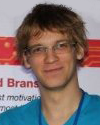 |
Hanno Evard obtained his PhD from University of Tartu (UT) in 2016. His PhD work was about the estimation of detection limit for mass spectrometric analytical methods. Since 2009 he has worked on development of several new ionization sources for MS and validation of different LC-MS methods. Since 2016 he is a research fellow in UT focusing on fundamental research and development of novel ionization sources. |
 |
Koit Herodes obtained his PhD from University of Tartu (UT) in 2002. Since 2008 he works as the head of the UT Testing centre – a unit providing testing and analysis services with accreditation according to ISO 17025 by the Estonian Accreditation Centre. Since 2005 Koit Herodes works as associate professor of analytical chemistry at UT Institute of Chemistry. He has been the principal investigator of numerous projects involving LC-MS analyses. Currently he is the PI of the project Development of software for validation of chromatographic methods, which aims at creating web-based software for validation of chromatographic methods. |
 |
Karin Kipper obtained her PhD Titled Fluoroalcohols as Components of LC-ESI-MS Eluents: Usage and Applications from University of Tartu (UT) in 2012. Since 2004 she has been involved in the bioanalytical method development and validation for HPLC-UV/VIS and LC-MS analysis, working at UT Institute of Pharmacology and Institute of Chemistry. Starting from 2012 Karin Kipper works as a research fellow at UT Institute of Chemistry. Karin Kipper carried out her post-doctoral fellowship focussing on ABDose clinical trial on antibiotics dosage for critically ill patients in the St George’s University of London between 2014 to 2016. Karin worked as Study Director and Head of Clinical Department in Analytical Services International Ltd between 2016 to 2019 supporting clinical trial work. Since 2019, Karin works as Head of Therapeutic Drug Monitoring Unit in Epilepsy Society. Her main research fields are pharmaceutical bioanalysis (pharmacokinetic/pharmacodynamic studies), therapeutic drug monitoring, pharmaceuticals’ pathways in the environment and development of novel eluent additives for LC-MS in order to improve separation, peak shape and LLoQ of basic compounds. |
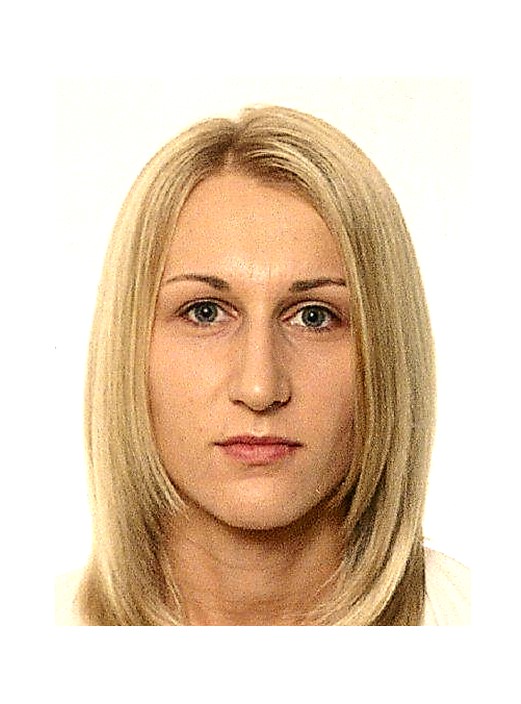 |
Irja Helm obtained her PhD in analytical chemistry from University of Tartu with a topic on validating and optimizing a high accuracy gravimetric Winkler method for determination of dissolved oxygen in 2012. Since 2011 she works as a research fellow in analytical chemistry at University of Tartu and is involved in different metrology-related activities, such as high-accuracy dissolved oxygen measurements and interlaboratory comparisons. Irja teaches practical classes of analytical chemistry. She takes care that metrological concepts and approaches are introduced to students at as early stage of analytical chemistry studies as possible. Her main responsibilities during development of the present course are design and setting up the materials and tests to the web. |
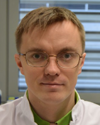 |
Asko Laaniste obtained his PhD from University of Tartu (UT) in 2016. His PhD work was about the comparison and optimization of different LC-MS ionization sources. Since 2016 he has worked on several collaboration projects between UT and chemistry industry regarding development and validation of chromatographic methods. Since 2018 his main goal has been the development of validation automation software ValChrom, which is integrated into this MOOC. He obtained Bachelor’s degree in software development in Tallinn University of Technology (TalTech) at 2023. |
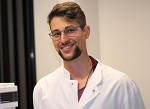 |
Maico Lechner graduated from the EACH programme in 2023. His thesis work was performed at Uppsala on the topic “Characterization of the target landscape of GSK3B inhibitors using multidimensional proteomics in the context of pluripotent stem cell differentiation into the neuronal lineage”. Previous working experiences include a 6-month internship at the Methrom-AG headquarters in Germany in the field of development and application of automated titration methods and several small research projects at Aalen University. |
Former team members
 |
Anneli Kruve graduated in 2011 from the University of Tartu and continued my studies as a post-doc in Techion, Israel. She was a Humboldt fellow at Freie Universität Berlin and has supervised several doctoral students at the University of Tartu. She joined Stockholm University in 2019 and is in charge of the mass spectrometry laboratory. In 2018 Anneli Kruve was selected to be among the Top 40 under 40 power list by the Analytical Scientist. The fields of study of the group of Anneli Kruve are focused on the fundamentals and applications of liquid chromatography mass spectrometry. Specifically, on establishing (semi-)quantitative non-targeted analysis and applying ion mobility separation for complex structural characterization. Her group uses modelling and machine learning to understand ionization processes in electrospray (ESI) and developing semi-quantitative non-targeted analysis methodology. Go to her group website for more. |
 |
Maarja-Liisa Oldekop obtained her Ph.D. from the University of Tarty (UT) in 2017 and is now working as a quality manager in private sector. Her main field of expertise is development of LC-MS methods using derivatization. |
Technical design: Educational Technology Centre, University of Tartu.
Contact and feedback
Ivo Leito
University of Tartu
Institute of Chemistry
Ravila 14a, Tartu 50411
ESTONIA
Tel: +372-5 184 176
e-mail: ivo.leito@ut.ee
Skype: leitoivo
Copyright
This learning object is protected by copyright under the copyright law of the Republic of Estonia. Proprietary rights belong to the University of Tartu. It is allowed to reproduce, distribute and perform the learning object in public only for learning and teaching. The learning object can be used only as a whole, except in the case of citation. The learning object cannot be used for commercial purposes and all usage has to be accompanied by a sufficient acknowledgement. It is not allowed to modify or make an adaptation of the learning object.


